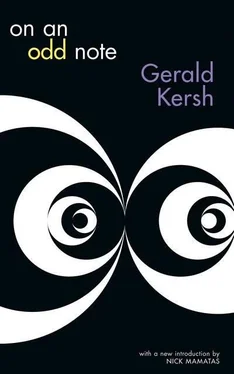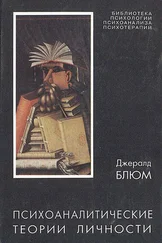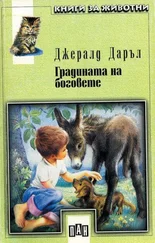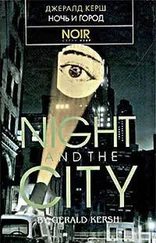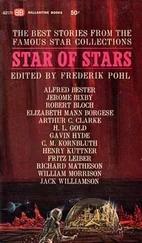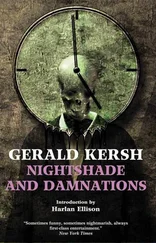The last words in what may be described as Lalouette’s Journal are as follows:
A wind is blowing . The fire is dying . God grant that my end may be soon .
This is the history of the Queen of Pig Island, and of the bones Captain Oxford found.
Time is a liar and a tease. Time is a confidence trickster. Time sells you that which is not, and which never has been. The Devil makes capital by selling Retrospect in three dimensions to fools like Faust who, at the cost of their immortal souls, want to capture their “youth.” How often have we heard the voice of ulcerated misery, wise with the wisdom of a quarter of a century of interoffice knife-play, groaning in one of those discreetly dim bars off Madison Avenue: If only I could have my time over again! . . . Or in Michael’s Pub off Fifth Avenue, or the Absinthe House on the West Side, about 12:45 any afternoon, watched it feeling the tatty fur on its tongue with its loose-fitting false teeth, and talking out of the corner of its mouth furthest away from you (for fear of offending you with bad breath) of what might have been perhaps, would be whether, and should have been if . . .
Si la jeunesse savait! Si la vieillesse pouvait!— so yearns the catchword, meaning: “If youth had the experience of old age; and old age the vigor of youth!” These French epigrams go down smoothly, but stick in the discriminating craw; could anything be more repulsive than a teen-ager, in all his frenetic vigor, with the outlook, the libido, and the untickled appetites of a decadent old playboy? . . . The most incorrigible Time-Over-Againers are generally to be found in the self-huckstering professions—I mean advertising men, real estate speculators, moving picture men, journalists, and the like—people who are incredibly wise long after the event. These young-old-timers must necessarily be one jump behind competition; they are living on borrowed time.
Some of the very worst offenders in this respect are the elderly, brilliant desk-men, features men, and editorial writers in newspaper row. They earn good money and are much looked up to; newspaper cubs are honored by their attention and, figuratively speaking, hang on their leaden or purple lips. More often than not they are generous with their money, and with their advice; and if there is one kind of person they like better than the worldly wise one whom they knew “when,” it is the eager youngster with ideals to denigrate. Their cynicism is sad, kindly, even paternal . . . but it is, nonetheless, the voice of weariness and disillusionment. Toward the end of the evening, when they are expected at home, where their friends are not welcome, they generally say, with a lingering, nostalgic, affectionate handshake, “Ah, my boy, if I were your age!” And when they leave you have a feeling of something lost, or rather mislaid; in some pyramidal shadow in one of the corners of the pub they have left something of themselves behind, something ragged with disuse. . . .
When I was in Fleet Street—which is, in London, what newspaper row once was in New York—the night editor of The Daily Special was such a man. His name was Bohemund Raymond, and his incapacity for hard liquor had made him notorious from Blackfriars to Temple Bar. (I say “incapacity,” on the assumption that a capacious man can drink a lot without getting drunk.) I believe that his appearance of drunkenness was exaggerated by a peculiar habit of speech: he spoke with a Devon drawl, and had, moreover, that inability to pronounce two successive consonants which is supposed to be characteristic of the Arabs. Take, say, the word strong: Bohemund Raymond would pronounce it something like “issitirong.” Once, in the Punch Tavern, some old soldier, half-demented with malaria, who had been trying to sell an article about elephants’ tusks during the silly season, had the nerve to say, in Bohemund Raymond’s hearing, “No, I mean to say, blast it! Was in Palestine with Allenby, blast it! I talk Wog. That man talks with a chi-chi , like a confounded Wog. No, really, I mean to say, after all, what?” Whereupon Bohemund Raymond looked at the man steadily for a long time, and said, in his peculiarly resonant voice, “By ‘Wog’ I take it this derelict means ‘Arab.’ Why, of course! By God, my fathers took Antioch when this fellow’s people were herding swine! Damn it,” shouted Bohemund Raymond, pointing to one of the arteries in his throat, “in this vein flows the blood of Bohemund, of Richard Lion-Heart, of Godfrey de Bouillon! My ancestress was a Saracen princess. Damn your eyes, my own mother was named after her—Asia Raymond, short for Ayesha! . . . ‘Wog!’ ”
The old soldier, fatuous with bottled beer, said, “No, but really, I mean to say, after all—what I mean, all those fathers, eh, and only one mother, what?” Then Bohemund Raymond said: “I’ll ‘Wog’ you,”—and so he did, with a pewter pot. And he saw to it that the article about elephants’ tusks was rejected the following day; threatened, indeed, to resign if it was accepted. . . . It was not that Bohemund Raymond was mean, or vindictive; in general, he was very generous and, in a quarrel, magnanimous. Only he could not bear to be touched in his ticklish spot: his ancestry.
As everybody knows, Phoenician blood ran strong in the west of England, where his family came from, so that to this day you may see hawk-faced, black-avised, strangely clannish, subtle, proud and quarrelsome alien-looking men and women around Marazion. But Bohemund Raymond disclaimed descent from these Vikings of the Levant. No; he insisted that he was a lineal descendant of a great crusader and the Princess Ayesha who, he emphasized, was divinely inspired, a prophetess, something like Cassandra of Troy, only more so. He would recount with extraordinary vividness the circumstances of her prediction about the Battle of the Spear: It seems that Ayesha, after she was carried off, baptized out of hand, and married to his ancestor, had a revelation in a dream of a buried spearhead which, said Ayesha, was a holy relic; it had been used by a Roman soldier at the foot of the Cross, so that whoever followed it must be certain of victory. The spearhead was dug up, the crusaders followed it as a banner, and won a wonderful fight. Telling of this, with a wild, faraway look in his dark-pouched black eyes, Bohemund would say, “And I, too, my friends, shall perish by the ancient bronze spear in the right hand of my ancient hereditary enemy!”
When he had drink taken—and when had he not?—Bohemund Raymond frequently made such cryptic oracular prophecies. We happened to remember this one, when he died of blood poisoning in the summer of 1939, having run a rusty brass paper fastener into his left thumb. He had drunk himself out of half a dozen important jobs in Fleet Street—gulped himself down; as I may say, swallowed himself—so that at the time of his death he was fiction editor of The Evening Special , a creature whom we fiction writers liked to whisper of as one of the lowest forms of life.
The news of his death was received as the news of such deaths is generally received in the newspaper rows of all the cities in the world. There were the maudlin ones who, having made their reputations in other lines of the business, and seeing in this minor tragedy the handwriting on their own walls growled, “We won’t see his like again,” and went to the Press Club in search of more mourners of their generation. There were cubs, gnashing their milk-teeth among the umbles, the scattered guts of the big kills, who, hoping one day to pull down their own bull, watched for a forward movement in the pack. Some gloated: The elephant-tusk man maintained that it was his story that had caused the death of Bohemund Raymond; he said that it was still going the rounds, pinned together by the same paper fastener, which was covered with verdigris (his pension was not due until next Tuesday and, meanwhile, although he hated to accept a drink without being able to return it . . . et cetera . . .). An old advertising man, who had entertainment-expensed himself into the gutter of the small-ad peddlers, said that Bohemund Raymond had survived that long by blackmailing Lord Lovejoy, the baron who owned The Daily Special , The Evening Special , and The Sunday Special ; trust Bohemund to know where the body was buried, he said, with a beery wink, nodding like a porcelain chinaman . . . until one of the old guard, “Swindle-sheet” Morris, gasping over half an inch of cigarette—mysteriously, he never had more or less than half an inch of cigarette—told him to be damned for a dirty little advertising man.
Читать дальше
